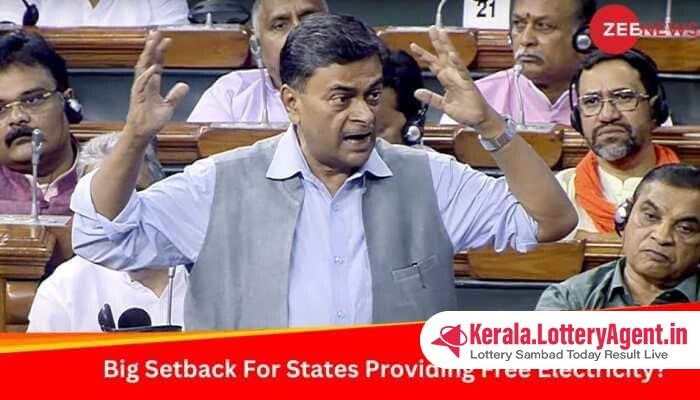
New Delhi: In a candid interview, Power Minister RK Singh expressed grave concerns about the financial repercussions for states that use borrowed funds to provide free electricity to their populace. Singh emphasized that while populist measures like free electricity might garner public favor, they should only be implemented when a state’s fiscal situation is robust enough to absorb the costs without resorting to additional borrowing.
The power sector, like many others, incurs expenses at every stage of electricity generation. Subsidizing power for any group entails allocating funds to compensate power producers. If these payments aren’t made, the continuity of electricity production itself becomes jeopardized.
Singh, addressing the media, underscored the harsh reality that “electricity is not free.” This statement comes in light of certain states’ practices to appease constituents through such subsidies. “If any state wants to give free power to any category of people, they can go ahead and do so, but you have to pay for it,” he said, implying the necessity for states to have the financial bandwidth to support these subsidies.
The minister raised an alarm over states with spiraling debts opting for such populist tactics, further straining their financial structure by borrowing more to cover the costs required to pay electricity producers – a move that he believes is setting the stage for a potential debt crisis.
Singh cautioned, “You should not be bringing your state to a situation where it falls into a debt trap. Many of the states are close to debt traps because of freebies.” He pointed to Punjab as an example; since the Aam Aadmi Party (AAP) assumed power in 2022, it introduced several such populist measures, one of which is providing free electricity up to 300 units for each household.
The fiscal ramifications in Punjab are palpable, with reports indicating that the state accrued borrowings of about Rs 47,000 crore within the first two years under the AAP government. This has significantly compounded the state’s already sizeable debt burden, leading to a situation where a substantial portion of its tax revenues is now earmarked for servicing the interest and principal on past debts.
The minister elaborated that such policies are not just a financial strain but also shift the responsibility onto future generations. With states borrowing extensively to support populist moves, potentially to remain in favor with the electorate, long-term investments in infrastructure, healthcare, and education are at risk. The available revenue streams may become predominantly directed towards servicing these accumulative debts, leaving little for critical developmental projects.
Singh’s statements illuminate the complex interplay between short-term political gains and long-term fiscal responsibility. The narrative he presents is not isolated to a single state but seems to be reflective of a broader trend in which states are willing to put fiscal health at risk for immediate electoral appeal.
Addressing critics and supporters alike, Singh’s interview serves as a cautionary tale that underscores the importance of sustainable economic policies over populist subsidies that may ultimately lead to dire financial conditions. The minister stressed the importance of considering the legacies states leave behind, advocating for prioritizing the provision of essential services over temporary reliefs that could cause lasting damage to state economies.
In conclusion, the pertinent warning from Power Minister RK Singh carries with it significant implications for the future of state economies and the wellbeing of subsequent generations. His call to action aims to sensitize states to the potential pitfalls of free electricity schemes without appropriate financial backing, urging a balanced approach to governance that safeguards the economic future while addressing current needs.












